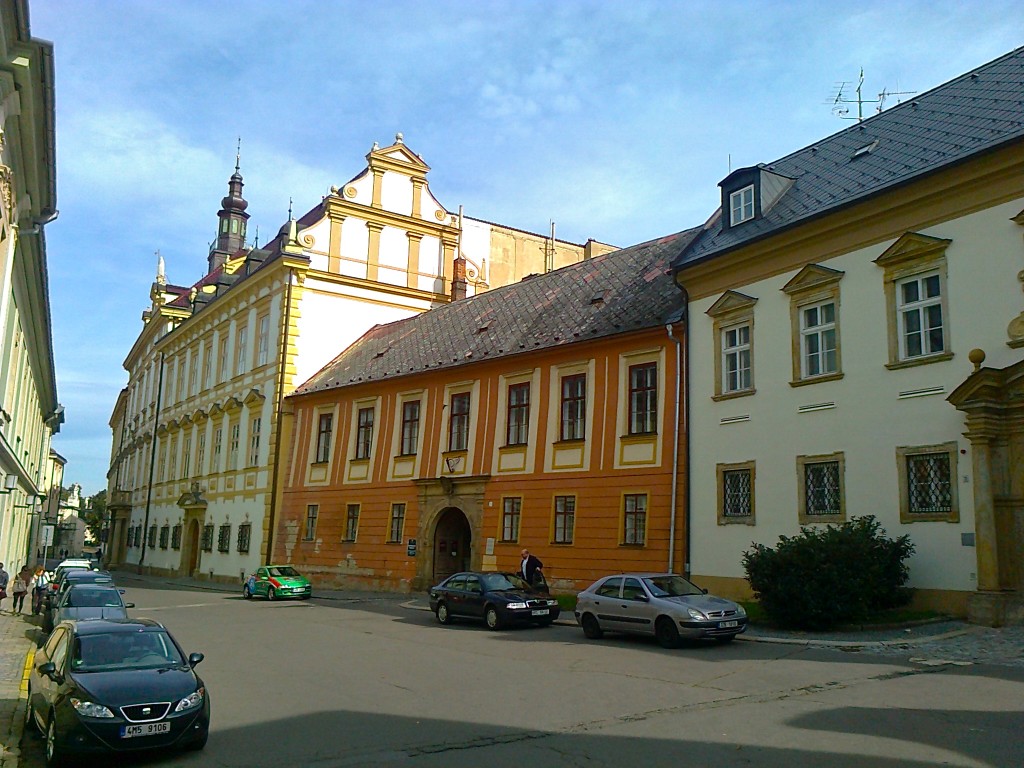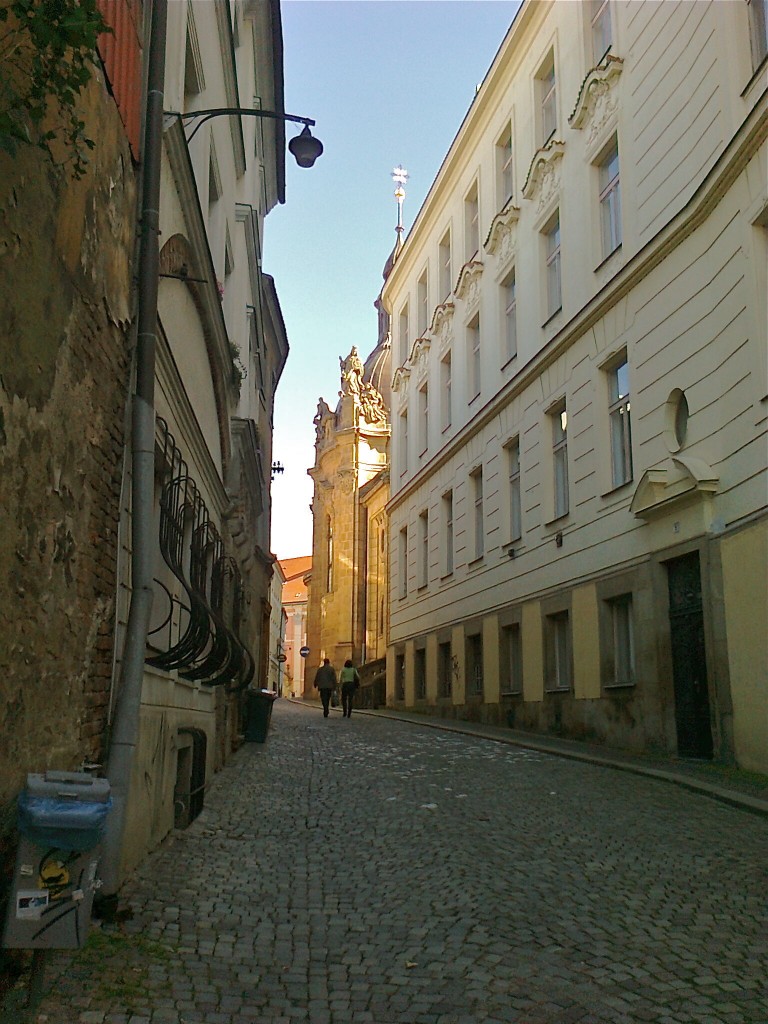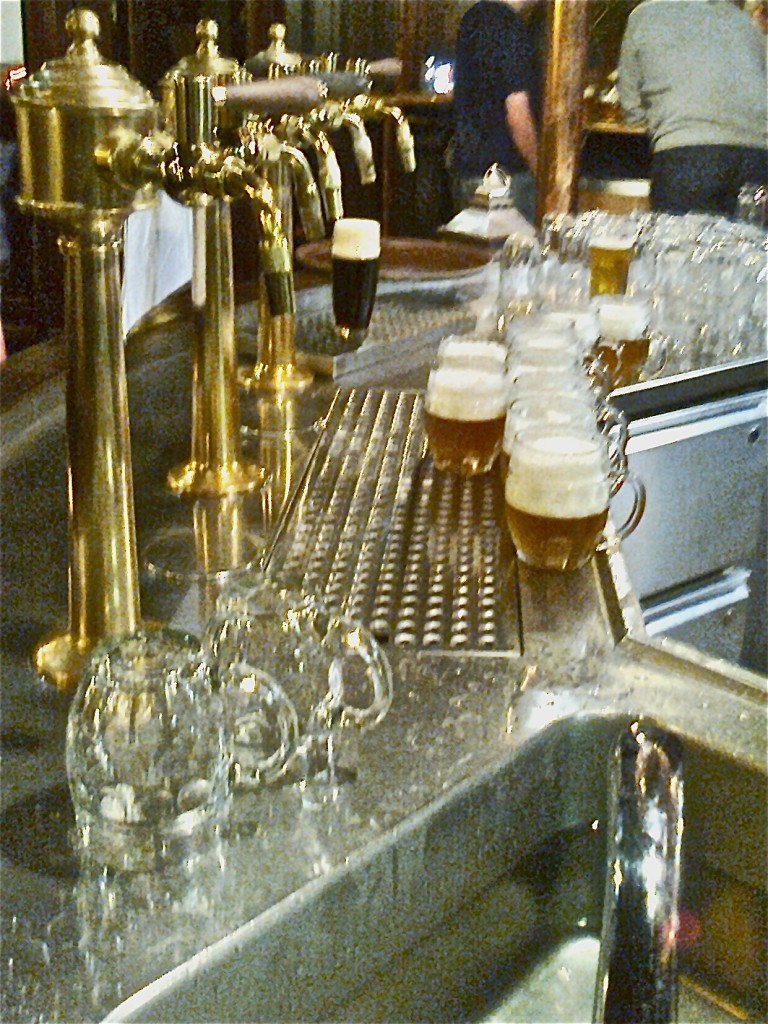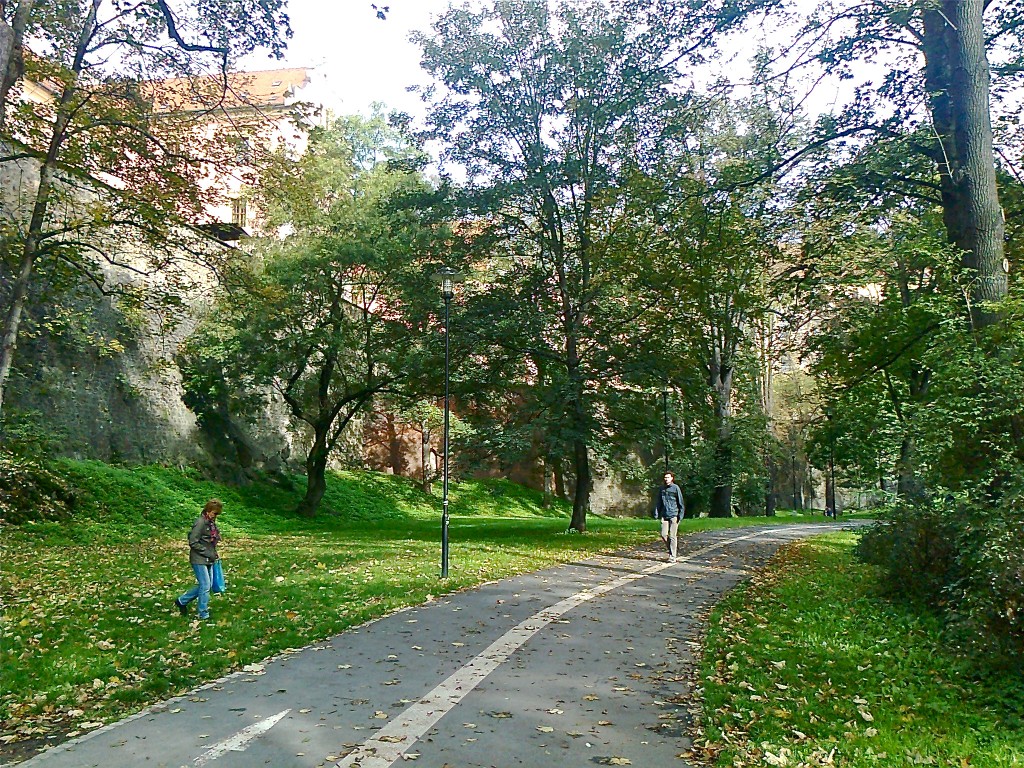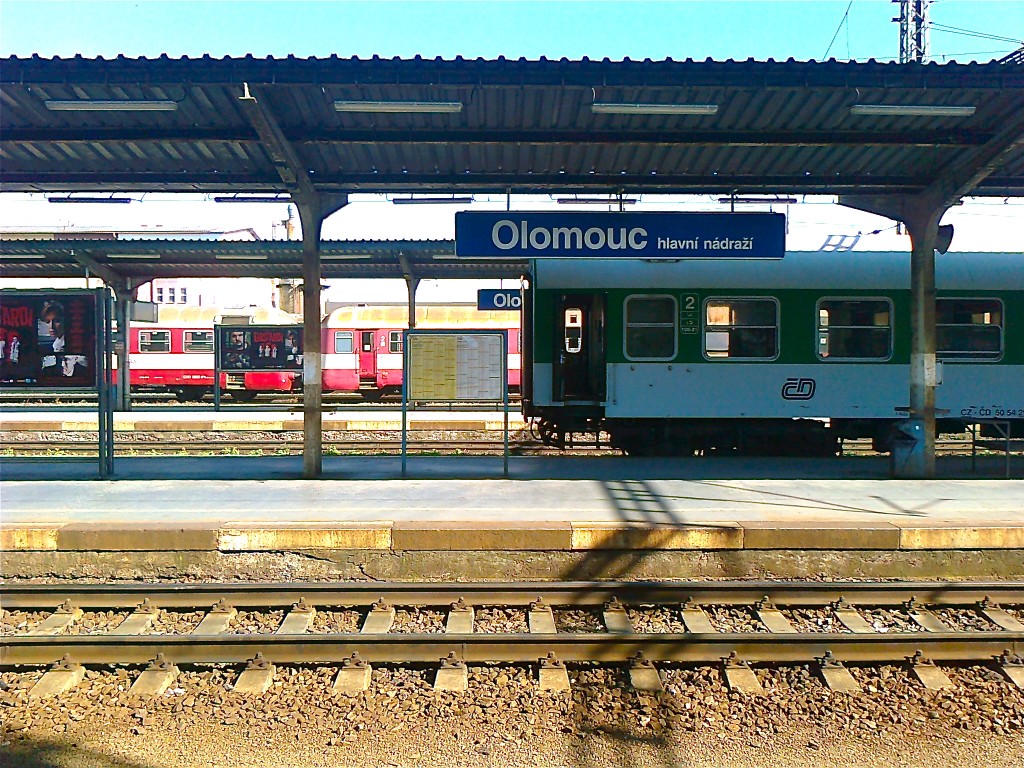A Remedy to Berlin Attitude: A Trip to Olomouc, Czech Republic
When I was a kid, we had neighbours from Moravia. My memory is triggered by cuisine: especially strudels and pancakes and spongey bread dumplings to soak up thick sauces. But I needed to come here as an adult to have a good foamy pilsner to appreciate what a complement it is. There are other adult pleasures on offer in Olomouc: a trip to a basement dance club, where I learned something about what kindness means in Moravia. But we’ll come to that.
Olomouc (pronounced Oh-la-mutz. Olmütz, in German) is in eastern Czech Republic, wedged between Silesia and Bohemia. When you arrive via Prague, hills grow up around you, the trees appear more detailed, feathery or finely painted. There are rushing streams and autumnal colours.
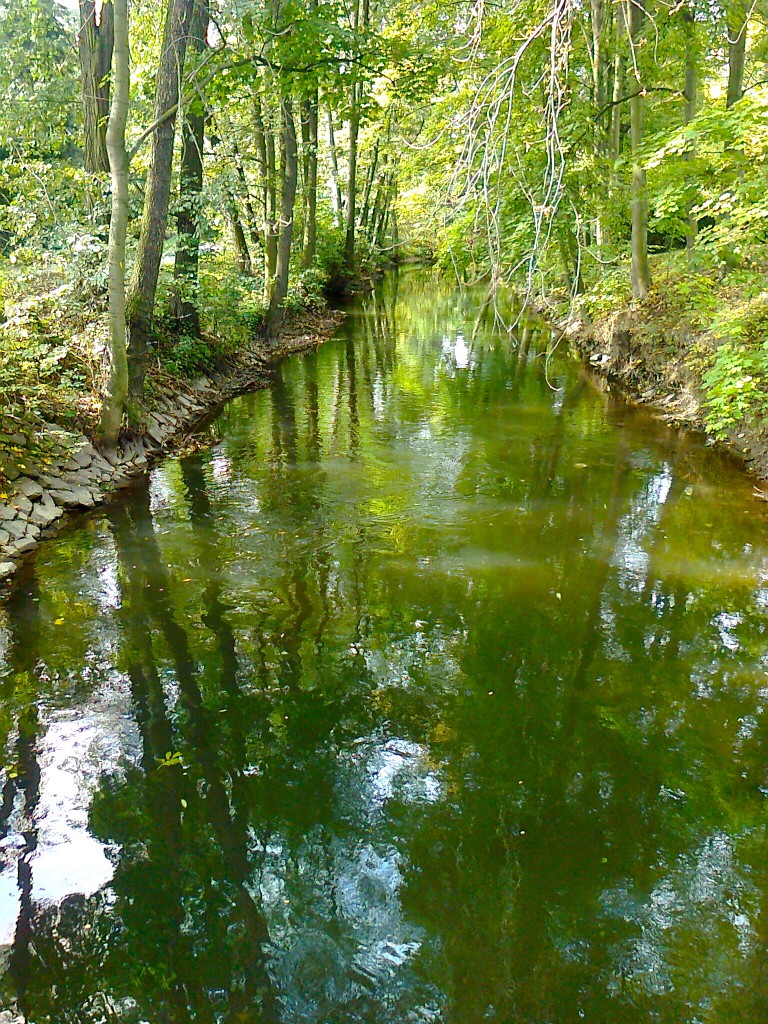
Below the fortifications around one edge of the old town, with the densest historical core in the country after Prague, there is a verdant park and botanical garden. It too gives one the sense of dense and raw nature. Architecturally, the old town, with its UNESCO-listed Baroque column, and Gothic churches (many regrettably transformed by Baroque and neo-Baroque refurbishment frenzies), and undulated streets of stark painted plaster, feels like many in the former Hapsburg Empire––Krakow to Zagreb. It is remarkable to enter the familiarity of Mitteleuropa with such ease from Berlin. The city is located, historically, at the intersection of these two former Empires. The ‘Punctuation of Olmütz’ was not a question of where to put the umlaut, but rather an agreement between Prussia and Austria in 1850 about the balance of power between the two states.
Like on my weekend trip to Wrocław, Poland, I am confronted in Olomouc with the changing borders of the German-speaking world. German city dwellers historically had an uneasy relationship with the Czech countryfolk. This was manifested in an extreme form, with the popularity of the Nazi party here and the renaming of the main square after Adolf Hitler. Needless to say, the city’s historic Jewish community did not survive. The German population was finally expelled when the city returned to Czechoslovakia after World War Two. The conservative German town was thus transformed by a Czech invasion from its hinterland.
Like many cities in Central Europe, such as Salzburg, that rose to power under the aegis of an Archbishopric and its (here, originally Romanesque) palace, symbols of the Catholic faith are ubiquitous: jagged monstrances and reliqueries of polished gold, sculptures to the ‘painful rosaries’ meting out lurid punishments, shrines and chapels around every corner.
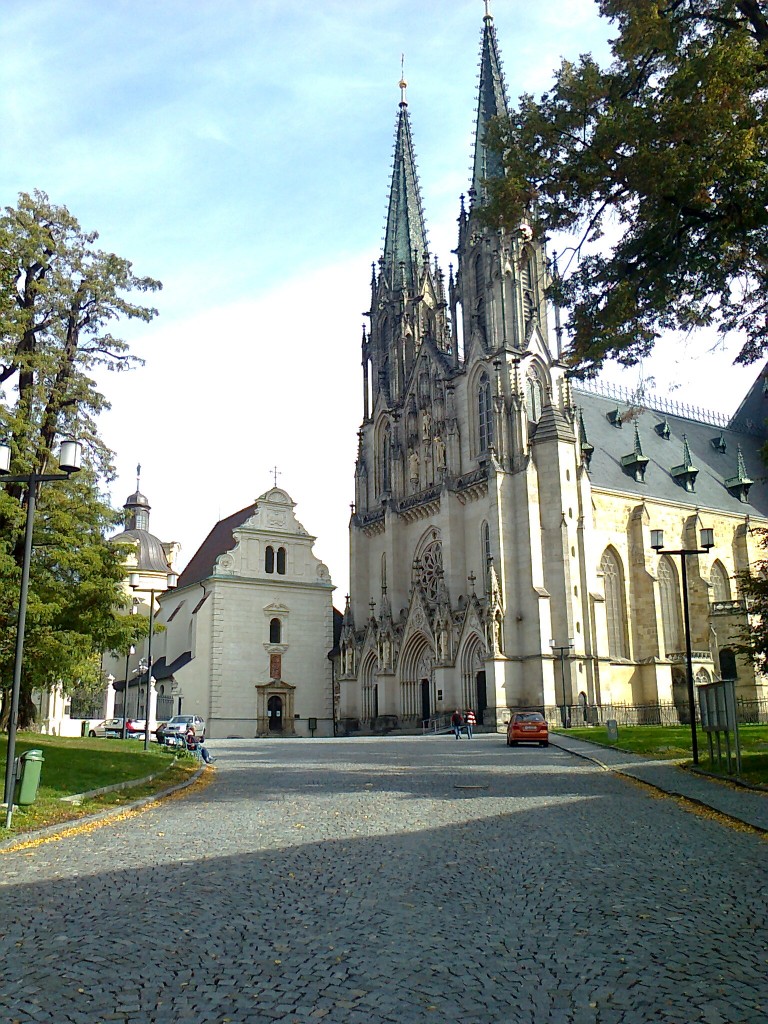
And so, going out late on Friday night after a few pints at the wood-panelled 1918 temple to Pilsner, Drápal, I wondered whether conservatism would impede the party-going, or whether Catholic guilt really is a thing of the past.
I was advised before departure by my Berlin friends that the Czechs are wild. After a night out in Olomouc, I found myself scanning the blogs to confirm my suspicion that the Czechs have remarkably few hangups and that casual sex here actually is a way of life, and not something I’ve just read about in Kundera novels or seen in Miloš Forman films (Loves of a Blonde is actually set nearby in a factory town in rural Moravia, where women outnumber men). The Czechophiles among you may well accuse me now of romanticising sexual liberation in a country with many power imbalances between men and women and subterranean conservatism. All I can say is that, even coming from a big hedonistic metropolis like Berlin, I found Olomouc (or at least the bar I went to) surprising. And it’s definitely a world away from its cagey Slavic neighbours, like nearby Poland. And here’s why.
Here the ‘Berlin rules’ for bar-going are broken. Instead of standing with severe coolness at the bar, eyeing aggressively those who you find attractive instead of talking to them, and refusing to make a spectacle of oneself by dancing… in Olomouc, everyone at the bar is talking, dancing with strangers, sitting down next to you to ask you where you are from, and exploding in dance to the trashy electronica.
Now this might be what you expect from a little city, and take the openness as a tell-tale sign of provinciality. But you might not expect that sexuality here also seems completely fluid, ostensibly straight men dragging their friends by their belts onto the dance floor and grinding with them before kissing their girlfriends. Meanwhile, men in the corner snog each other, their pants half undone, and no one in the least bothered by the carnal exhibitionism. A group of older women arrive, all in their fifties and sixties, with massive ponytails and they pull at me, as I pass their table, demanding kisses. I oblige and they cry ‘good boy good boy!’ An older man in his sixties stumbles down the stairs drunk, sweaty and smelling of beer, then sits next to us. We inch away and we are kindly told by our 18-year old neighbour: ‘Why won’t you talk to him? He just wants to talk to you!’
What I felt more than anything else was solidarity and kindness. The older women and men, the college kids, the gays and the straights, could all share the same space in this provincial city, without ostracising each other with bitterness or attitude. Groups of strangers end up sitting together chatting, buying each other drinks. It was salutary to be reminded not to shrug off anyone in this place, to remember each person here, with their own desires or preferences, need not conform to set notions of beauty, is a sexual being worthy of dignity, and to be reminded how much more fun it is if we can all dance together. This might be a no-brainer, but if you are used to going out in Berlin, this is an antidote, if one ever existed.
We emerge in the early hours into the streets of this former Hapsburg city with the sun coming up. The wild Moravian trees are lit with golden light, almost obscuring the fortifications and churches. It is like the bonhomie of the countryside has invaded, and we are all better for it.
Travel Tips:
In Olomouc, we ate well at the Moravská Restaurant, which is probably expensive for Olomouc, but then the Czech Republic is on the whole very inexpensive compared to Germany. Olomouc promotes its cultural scene, and is home to the Moravian Philharmonic. For transport: book in advance (at least three days) and try to benefit from a Europa Spezial fare on German railways. Fares to Olomouc are now 39 EUR each way. It’s just over seven hours but through beautiful countryside. You can split up the journey by changing trains or overnighting in Prague. In any case, you need to change trains once. A good itinerary would be: Berlin-Prague (4 hours, one night), Olmouc (2.5 hours, one or two nights), back to Berlin. Or else, do what we did, travel straight through to Olomouc both ways, and hang out in the dining car with the autumnal colours blurring by to pass the time.


